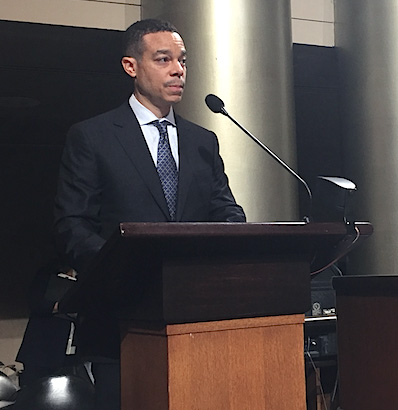Community Wins Major Victory for Independent Police Oversight Commission
Jun 23, 2018
Posted in Community, Police-Public Safety, Rebecca Kaplan, Responsive Government

By Ken Epstein
The debate at the City Council meeting went on for hours into the night, deciding the fate of the Oakland Police Commission. Would it be allowed to gain strength as an independent body that deliberates issues of police accountability and discipline, in the manner promised by Measure LL when it was passed by 83 percent of the voters in 2016?
Or would the commission be required to operate like all other departments and commissions in the city, overseen by the City Attorney and City Administrator, who have not managed to produce a scandal-free police department after 15 years of federal oversight of OPD.
Ultimately, the debate ended Tuesday night in a major victory for the supporters of Measure LL and community members who were determined to hold onto the promise of an independent police commission.
Community members, over 80 of whom signed up to defend the commission, were backed by City Councilmember-at-Large Rebecca Kaplan, who fought hard on the council for their proposal. After two resolutions failed, she backed a resolution that most councilmembers were willing to accept in the face of the determined opposition of both City Attorney Barbara Parker and City Administrator Sabrina Landreth.
The vote was 6-1 in support of the resolution. Kaplan, Desley Brooks, Noel Gallo, Lynette Gibson McElhaney, Dan Kalb and Abel Guillén voted in favor. Annie Campbell Washington voted “no.”

Despite the victory, the conflict might not be settled. The ordinance must pass again at a second reading at the next council meeting, and there are indications that Landreth and Parker may try to influence councilmembers to reverse their position, according to police commission supporters.
The disagreements centered on the content of the enabling ordinance, which will establish the guidelines for how the police commission will function. The commission itself was established by passing an amendment to the City Charter, Measure LL.
The enabling ordinance has been tied up in behind the scenes discussions with city staff for over 18 months since Measure LL’s passage.
At the heart of the dispute is whether those who staff the police commission, an inspector general and an attorney, will be hired by and report to the commissioners, who are volunteers, or if the inspector general will report to the city administrator and the attorney to City Attorney Parker.
The whole point of creating the police commission, according to its supporters, was to establish oversight of the police that is independent of the city administration.
Pointing out that the City Administrator Landreth serves as supervisor of the Chief of Police, and the City Attorney represents the police department, police commission supporters argue there is a clear conflict of interest if these two officials are allowed to be in charge of police oversight.

“I feel like a broken record. I keep coming here saying the same thing…We need an independent police commission, and every time I turn around, someone else is trying to undermine that independence,” said Lorelei Bosserman, one of those who spoke in favor of maintaining the independent of the police commission.
“The City Attorney should have no authority over the legal counsel for the police commission. (She) represents the Oakland Police Department. There is an inherent conflict of interest there,” she said.
However, Parker’s legal opinion said the Police Commission’s recommendations for the enabling ordinance the draft ordinance that was already passed once by the City Council are “not in compliance with the City Charter.”
According to Parker in her legal opinion, “The staff who provide services to the commission are under the City Administrator’s personnel jurisdiction because the Charter does not provide an exception to the City Administrator’s jurisdiction.” (For the legal opinions, go the City Attorney’s website: oaklandcityattorney.org and click on the “Opinions and Reports” link.)
Speaking to the council meeting, Chair of the Police Commission Thomas Smith said that in order for the commission to do its job, it needs a “non-City Attorney-appointed legal advisor” and “an inspector general (who) reports directly to the commission—not somewhere else within the chain (of command).”
He said, “When you consider the fact that there is a constant interaction…between the police department and the people who serve the City Attorney, there is a relationship there… Does it have some influence? Is there some bias?”
Councilmember Kaplan, backing the police commissioners’ requests, said, “I think it is very important that we stick to the commitment that was made when this was being written, which is independent oversight.”
“We need independent oversight both so the commission can actually be independent and do the functions it was intended to by the voters and also so the commission can maintain its credibility, so its actions can be trusted and not seen as under the control of anyone who might have a dual role in terms of their management of the police department.”
Councilmember Kalb’s motion to accept the City Attorney’s changes to the enabling ordinance failed to pass, as did Kaplan’s motion to adopt the community coalition’s proposal.
What finally passed was a compromise motion, crafted by Kalb and Kaplan, that contained the two most important provisions of the commission’s recommendations.